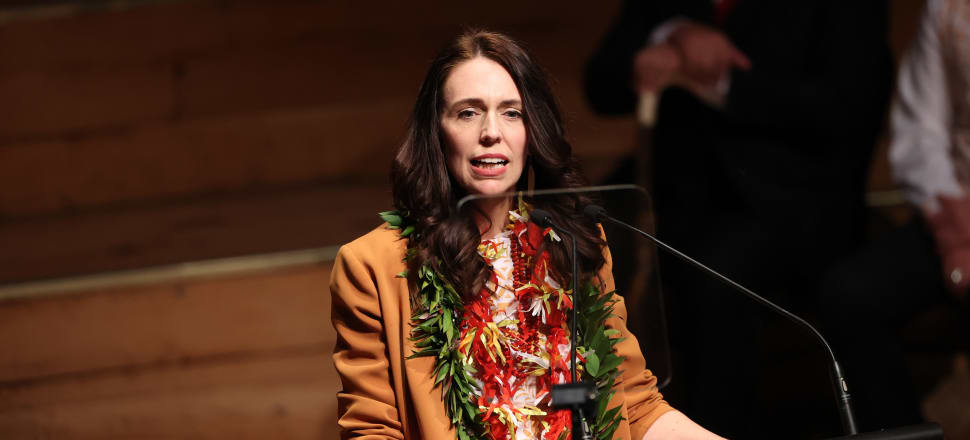
The Prime Minister is downplaying suggestions China played a role in Kiribati breaking ties with the Pacific Islands Forum, saying that while the move is disappointing, it's not a sign of wider disunity
Speculation around China’s role in the withdrawal of Kiribati from the Pacific Islands Forum has been brushed off by Prime Minister Jacinda Ardern, who says she doesn't want to “second-guess” the nation’s reasons for leaving.
The announcement of the country’s departure from the forum with immediate effect has rocked the organisation, as leaders prepare to meet this week.
Speaking to media before her departure, Ardern said Kiribati’s withdrawal from the forum was a disappointment, but she believed the organisation and its members had done what they could to find a resolution.
“Ultimately they haven't been able to do that to the satisfaction of Kiribati. I don't believe that means that as a whole, that's a sign of a wider disunity - I think actually rather it demonstrates the efforts have been made, and I imagine that efforts will continue to be made.”
She did not believe the country’s withdrawal would destabilise the region, noting it had expressed a desire to continue working with the forum on the most significant issues facing the Pacific.
“There is a view that issues like climate change, which affect all of us, we must keep working collectively on and my hope is that over time that Kiribati will choose to come back into the forum but that will ultimately be their call.”
She also sought to downplay suggestions China had played a role in Kiribati breaking ties with the forum, saying she did not want to “second-guess their decision and attribute it to something entirely separate” when they had set out their own reasons for withdrawal.
The forum needed to do all it could to ensure members remained united, given the importance of the Pacific region speaking as a whole on issues of concern.
“Would it be preferable of course for everyone to be at the table? Absolutely. Will it stop us continuing work in those areas that even Kiribati identify as being critical for the region? No.”
Speaking about the security agreement signed between the Solomon Islands and China earlier this year, Ardern said the forum had already made it clear “that when it comes to regional security issues, those are issues that we would like to see the Pacific Island family having a voice on”.
“That does not take away from the individual sovereignty of any nation to determine the relationships that it has. The understandable request of the region is, where it has a knock-on effect, the ability of everyone to have at least some voice to that.”
While the specifics of individual agreements would not necessarily be traversed, it was important to discuss the underlying principles of what voice the region would have on national agreements.
Ardern said climate change was sure to be the dominant topic of discussion at the forum as had been the case in recent years, with concern only growing as the threat moved from the future to the present day.
“Some of us have had the opportunity to see that first hand - this is not a hypothetical - and so I expect the region will want to see from within region members a firm commitment to our own contribution, our own mitigation, but what we are doing to support one another.”
Ardern confirmed New Zealand would support Vanuatu’s push for the International Court of Justice to issue an opinion on the human rights impacts of climate change - a move supporters have argued would set a significant legal precedent for countries’ obligations.
The Government planned to actively support Vanuatu on the matter at the UN General Assembly later this year, although it would need to see the wording of the proposed resolution first.
“This would be one of a number of measures that of course you see, rightly, those who are most climate affected seeking to take to ensure that those who have the greatest power, and the largest impact on climate emissions reduction, making sure that they are doing their bit.”
Asked about the Green Party’s call for New Zealand to back a moratorium on deep sea mining, Ardern said it was important for Pacific nations to have strong environmental and regulatory frameworks in place when considering such proposals.
“We have offered support to establish those frameworks because often in some countries, they'll be proposals put forward by those who have a vested interest without necessarily the regulation to try and help manage those.”
The Prime Minister said the region’s recovery from the Covid-19 pandemic was also likely to come to the fore, given many countries were only now beginning to reopen to the world having been heavily reliant on international tourism.







